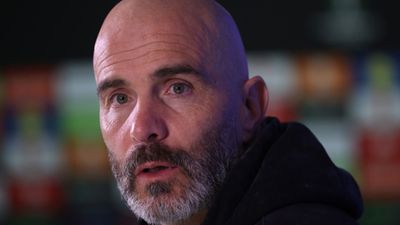Strasbourg’s stunning ascent up the Ligue 1 table has transformed them from relegation scrappers to European hopefuls—a fairytale rise that’s captivating French football. But for Chelsea, their sister club under BlueCo’s multi-club ownership, this success carries a thorny twist. As Strasbourg battles for a European spot, UEFA’s strict regulations on shared ownership could slam the brakes on the Blues’ transfer strategy, blocking moves for rising stars and complicating a model built on seamless player development. What began as a symbiotic partnership now risks becoming a regulatory minefield.
BlueCo’s double-edged sword: When success clashes with UEFA rules
When BlueCo—the consortium led by Todd Boehly and Clearlake Capital—acquired Strasbourg in 2023, the vision was clear: Create a feeder club to nurture Chelsea’s young talent. But Strasbourg’s Cinderella campaign, fueled by English coach Liam Rosenior and shrewd recruitment, has thrust them into fifth place, just three points off a Champions League qualifying berth. Suddenly, the very model designed to empower Chelsea threatens to backfire.
UEFA rules prohibit clubs under the same ownership from transferring players or sharing resources if they qualify for the same European competition. Chelsea, currently fourth in the Premier League, and Strasbourg, chasing Europe, now dance on a tightrope. As UEFA president Aleksander Ceferin reiterated:
“Clubs [in the same competition] cannot transfer players, collaborate commercially, or share databases.”
The ramifications are immediate. Chelsea’s planned summer signing of Strasbourg’s 19-year-old defensive prodigy Mamadou Sarr could collapse if both clubs land in Europe. Similar clashes have already derailed deals: Manchester United was barred from signing Nice’s Jean-Clair Todibo last year due to INEOS’ dual ownership. For Chelsea, loans like goalkeeper Djordje Petrovic and midfielder Andrey Santos at Strasbourg might face scrutiny, while future pathways for prospects risk closure.
BlueCo’s multi-club blueprint hinges on cycling talent between Stamford Bridge and Strasbourg. As Boehly outlined in 2022, the goal was to “show pathways for young superstars to get Chelsea game time” while developing in a “competitive league.” But Strasbourg’s unexpected surge—now just one point behind fourth-placed Nice—complicates that vision. If both clubs qualify for the Champions League or Europa League, Chelsea could lose the ability to leverage Strasbourg as a talent incubator.
The Premier League’s tight race amplifies the stakes. Chelsea sit fourth but are just five points clear of 10th-place Bournemouth. Should they and Strasbourg secure European slots, BlueCo must prove “clear separation” between the clubs to avoid UEFA sanctions. While penalties like competition bans are avoidable (as seen with Manchester City’s CFG network), transfer restrictions could cripple Chelsea’s youth-driven rebuild.
For now, Strasbourg’s rise is a testament to smart management—and a problem Chelsea never saw coming. As one insider quipped, “They wanted a feeder club, not a rival.” Whether BlueCo can navigate this regulatory gauntlet will define not just their season, but the future of multi-club ownership itself.
ADVERTISEMENT










